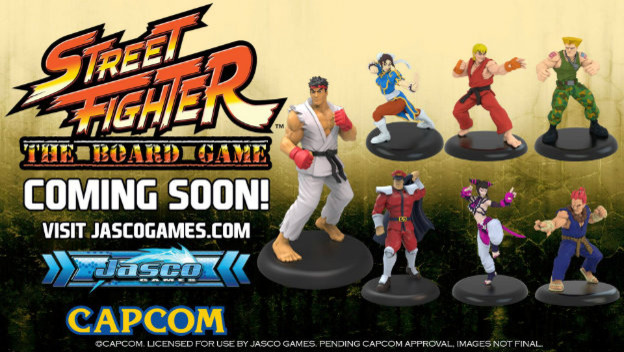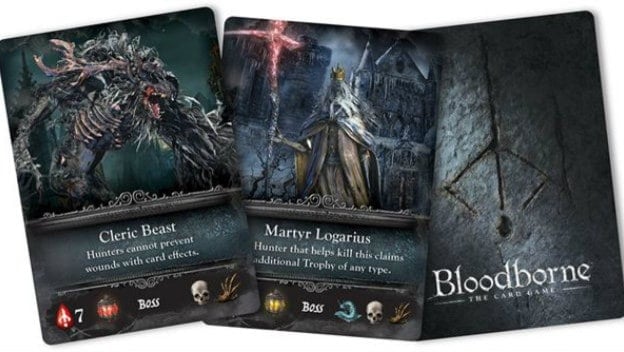There are a couple intersecting trends I’ve been noticing over the years. First, board games. Board games, over the last few years, have exploded. Especially adult-oriented games – games that are based on nerdy IPs, or games that are super complex that last for hours and have several-page rule books. Also, board games based on video games have steadily been a growing thing over even more recent years, and I’m not just talking about Nintendo-branded Monopoly boards. Hardcore-aimed board games based on anything from DOOM to Bloodborne have been hitting store shelves, and knocking out Kickstarter goals in record time. Some are even hitting the furthest heights of boutique status, such as the recent Street Fighter miniature game.
What I find myself wondering is the… validity of these various board games. It sounds crappy of me to say out loud, but the reality of the situation is that a board game is ludicrously difficult to make in a way that is more akin to making a fighting game. Balance is a serious concern when making a board game, especially one in the hardcore niche demographic. These are games that demand multiple hours for a single playthrough, and ideally want you to play them more than once. It requires serious talent in terms of being able to anticipate the way players will try to bend and break the systems, as well as encouraging long term play through providing players with different ways to play and have an ostensibly equal chance of doing well. Often all it takes is one bad experience for a player to drop a game.
So when I see a bunch of games with established IP from other mediums on them, I wonder how much of that is relying more on the brand over the quality of the game to make them sell. A prime example of that is the Mega Man board game. It nailed its Kickstarter goal, but every review I’ve read speaks of how the game doesn’t do much to justify its presence beyond comprising Mega Man characters. Personally, I’ve contributed to the Kickstarter for a Teenage Mutant Ninja Turtles board game, and while it was great in terms of the style of the game, the pieces, and all the included extras, as a game it was a chore to get through, largely because of the balance issues I mentioned before.
I grow even more weary when I see the price of these things ballooning. These “serious” board games are expensive, with even the ones that aren’t adorned with popular IP. A good board game will often run upwards of 50-60 dollars, the cost of a video game. But the Kickstarter games, loaded with special, limited flare and other pack-ins, can often go much higher. When I bought the TMNT game, I ended up paying around 150, and now it’s sitting in my closest unplayed after a few negatively-received sessions. The new Street Fighter miniatures game is upwards of 250 dollars if you want everything, and the creators have stated the game likely won’t even be available outside of the Kickstarter campaign because of all the stuff that comes with it as designed. That’s cool for collectors, but does it make for a positive gaming experience?

That’s my concern, that rights holders would probably be better off staying in their lanes rather than trying to brute force into an industry that’s a niche for a reason. A successful niche, but a niche nonetheless. They’re expecting to sell on the brand, and sell to crazy extremes much like video games have elaborate limited editions, but in many cases the limited edition is the only option.
I’d love to be proven wrong, of course. If games like the Resident Evil 2 and Deadly Premonition board games end up being good then I’m totally down. But this isn’t something you can just dip your toes into, and being skeptical seems like the most pragmatic option for now.
